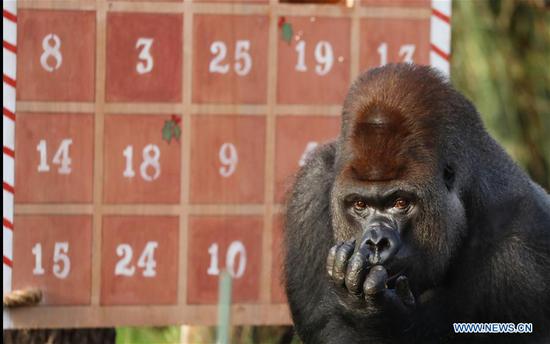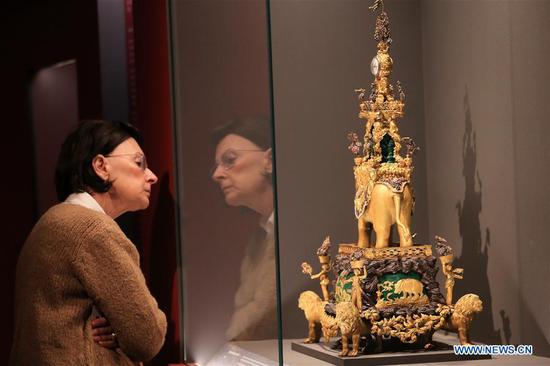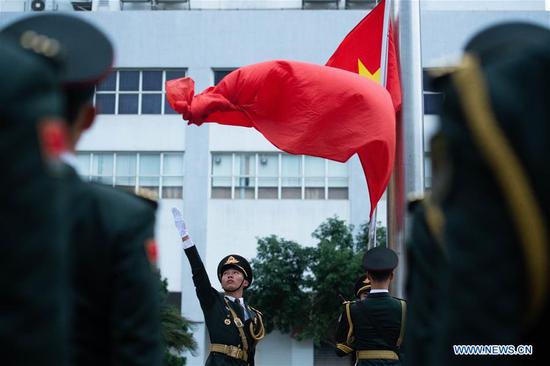Foreign enterprises will receive pre-established national treatment plus a negative list management system, and will enjoy the same rights as domestic companies to participate in activities including issuing stocks and bidding for government procurement projects in China, according to a draft law made public by the country's top legislature on Sunday.
The draft foreign investment law was submitted to the Standing Committee of the National People's Congress for a first review. It is expected to replace the country's three current statutes concerning wholly foreign-owned entities, with the move seen further promoting the rights of foreign investors.
Capital contribution, profits and capital gains of foreign investors in China can be freely transferred out of the country as either renminbi or in other foreign currency denominations, according to the draft law.
The document stipulates that the State protect the intellectual property rights of foreign investors and encourage technology cooperation based on voluntary principles and commercial rules. The conditions for such cooperation are determined by consultation among involved parties.
Tang Wenhong, director-general of the Department of Foreign Investment Administration in the Ministry of Commerce, said the ministry and other relevant authorities have been facilitating the legislative process of the foreign investment law.
As common international practice, Tang said the essence of pre-established national treatment is to provide national treatment for foreign capital during entry stages.
However, there are some exceptions to such treatment. Many countries adopt a negative list to restrict foreign capital from entering key industries or sensitive areas. All fields not on the negative list are accessible to foreign capital without governmental approval necessary in advance.
The ministry has urged provincial commerce departments to improve working mechanisms to better deal with foreign companies' complaints, and promptly respond to and address problems.
According to the draft, companies will not be regulated based on their ownership but on "who is in control".
Foreign companies in China controlled by overseas investors will be considered foreign, while those controlled by Chinese investors will be regarded as Chinese.
The move will build a predictable and transparent business environment for global investors and safeguard their interests and rights, ensuring that they are given national treatment and fair market conditions, said Ma Yu, a researcher at the Chinese Academy of International Trade and Economic Cooperation in Beijing.
"Under such circumstances, multinationals will be keen to strengthen cooperation with their Chinese partners in promoting regional development, technological innovation, outsourcing services and product safety," said Liu Junhai, a professor of commercial law at Renmin University of China.
Despite the downturn in global cross-border direct investment and increasingly intense global competition, foreign direct investment into China has continued a strong run this year, the Ministry of Commerce said.
A total of 54,703 new foreign-funded companies were established in the first 11 months this year in China, up 77.5 percent year-on-year. During the period, FDI flowing into the traditional manufacturing sector increased 19.1 percent from a year earlier.


















































